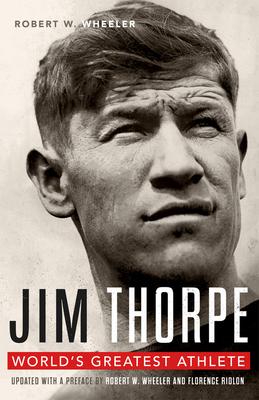Born in 1888 in what would soon be Oklahoma Territory, Jim Thorpe was a member of the Sac and Fox Nation. After attending the Sac and Fox agency school and Haskell Indian Junior College in Lawrence, Kansas, he transferred to Carlisle Indian Industrial School in Pennsylvania. At Carlisle he led the football team to victories over some of the nation's best college teams--Army, Navy, Pittsburgh, Syracuse, Pennsylvania, and Nebraska. In 1912 he participated in the Olympic Games in Stockholm, winning both the decathlon and pentathlon. It was then that King Gustav V of Sweden dubbed him "the world's greatest athlete."
Between 1913 and 1919, Thorpe played professional baseball for the New York Giants, the Cincinnati Reds, and the Boston Braves. In 1915 he began playing professional football with the Canton (Ohio) Bulldogs. When the top teams were organized into the American Professional Football Association in 1920, Thorpe was named the first president of the organization, renamed the National Football League in 1922. Throughout his career he excelled in every sport he played, earning King Gustav's accolade many times over.
In a new preface, Wheeler and Florence Ridlon update Thorpe's story, drawing on research they have conducted in spearheading the effort to restore the athlete's Olympic medals and his first-place wins in the pentathlon and decathlon, taken from him when it was discovered he had played professional baseball during the summer before the games in Stockholm. The explanation for Thorpe's imprudence, as Wheeler and Ridlon show, has everything to do with poor advice from the coach he trusted, Glenn "Pop" Warner, and a corrupt Indian boarding school system. The preface also discusses Thorpe's work on the lecture circuit and in the motion picture business, as an actor and recruiter of other Native actors.
